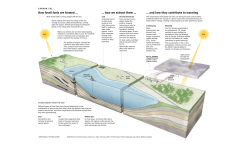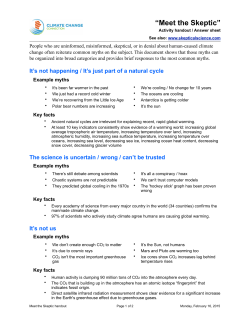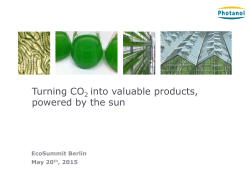
Case of the Oceans` Plankton
‘The BIG Questions‘ Public Lecture Ocean Interfaces – From Nanoscales to Global Impact: The Case of the Oceans’ Plankton Prof. Peter Liss, CBE, FRS, School of Environmental Sciences, University of East Anglia, UK 02 July 2015 | 17:00 h Microscopic plants (the plankton) that live in the surface of all the world’s oceans perform many functions vital to the health of the planet and so are important for our wellbeing. One example is the uptake of carbon dioxide (CO2) in the process of photosynthesis, which transfers CO2 along the path from atmosphere to surface oceans and ultimately to deep waters and the underlying marine sediments. This process illustrates how plants that are only visible under the microscope can play a significant role in controlling CO2 levels in the atmosphere at a global scale. Another example is, that gases produced by marine plankton and subsequently emitted to the atmosphere across the sea surface can play important physical roles in the formation of clouds and so affecting the heat budget and reflectivity of the atmosphere. Indeed, it has been proposed that such a process might act to stabilise the temperature of the atmosphere; a fascinating idea proposed more than a quarter of a century ago but which is still much debated! Cluster of Excellence “The Future Ocean“ Semester Theme: Ocean Interface Dr. Anke Schneider, schneider@phc.uni-kiel.de Venue: Wissenschaftszentrum, Fraunhoferstraße 13, Kiel www.futureocean.org/ocean-interfaces
© Copyright 2025





















